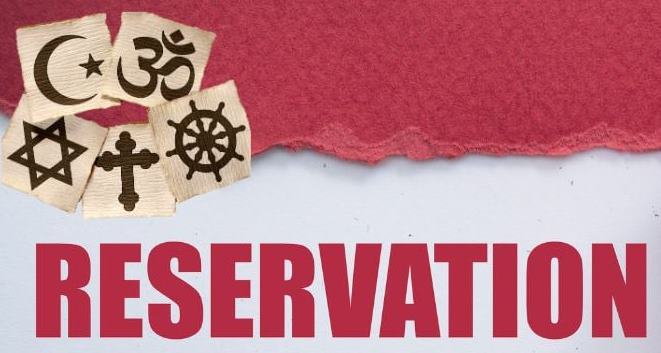– Mohd Naushad Khan
As the Lok Sabha elections 2024 are ongoing, the contentious issue of reservation has once again ignited widespread debate. Rooted in historical injustices and aimed at achieving social justice, reservation policies have long been a cornerstone of India’s affirmative action efforts. However, their implementation and efficacy continue to provoke intense discussions across political, social, and economic spheres.
Political Dynamics and Reservation
Reservation policies play a pivotal role in Indian politics, particularly during election seasons. Political parties often leverage these policies to appeal to specific voter demographics, with those advocating for reservation frequently garnering support from marginalized communities. These parties position themselves as champions of social justice, while opponents argue for merit-based selection and criticize the alleged politicization of caste and community identities.
Prime Minister Narendra Modi, while campaigning in Maharashtra’s Nandurbar, underscored his stance on religion-based reservations. He stated, “Reservation on the basis of religion will be against the values and principles enshrined in the Indian Constitution. As long as I am alive, I will not let reservations of Dalits, Adivasis, OBCs be given to Muslims on the basis of religion.”
Expert Opinions on Reservation and Substantive Equality
Constitutional expert Prof Faizan Mustafa, Vice-Chancellor of Chanakya National Law University, Patna, highlighted the distinction between formal and substantive equality. He emphasized that treating everyone equally regardless of their circumstances can lead to significant injustices for historically marginalized groups. Substantive equality, focused on achieving equal outcomes, is supported by affirmative action.
Addressing the question of reservations for Muslims, Mustafa clarified, “This reservation has been for the Pasmanda or backward Muslims without any reduction in SC, ST, and OBC reservation as only a sub-quota was created for the backward Muslim castes within the OBC category.”
Dr. Ranjit Singh Ghuman, former Professor of Economics at Punjabi University, Patiala, pointed out the original intent of reservation – to address centuries-old socio-cultural and politico-economic injustices. However, he lamented its politicization.
Ghuman suggested a rational approach to reservation, advocating that benefits should not be monopolized by a handful of people within reserved categories. He proposed that political parties should promote substantive democracy and ensure quality education and skills for the disadvantaged.
Caste Census and Reservation Policies
Political expert Prof Afroz Alam of Maulana Azad National Urdu University stressed the importance of a caste census in informing more equitable reservation policies. He noted that reservations aim to correct historical injustices and socio-economic inequalities, making them a crucial electoral issue.
Alam highlighted the stance of the INDIA coalition on expanding reservations beyond the 50% cap to better reflect demographic realities.
Sabir Ahamed, National Research Coordinator at Pratichi (India) Trust, founded by Nobel Laureate Amartya Sen, criticized the incumbent government for targeting the constitutional rights of disadvantaged communities instead of creating new jobs. He emphasized that affirmative action in education and employment could bring about equity in society.
Challenges and Controversies
Despite its noble intentions, reservation faces several challenges and controversies. Critics argue that it perpetuates caste divisions, undermines meritocracy, and fails to address the root causes of social inequality. Concerns also exist about the disproportionate benefits to the creamy layer within reserved categories, leaving the most vulnerable sections behind. Calls for expanding or restructuring the reservation system have emerged due to inadequate representation from certain marginalized communities.
The Path Forward
As the 2024 Lok Sabha elections are going on, reservation is expected to be a focal point of political discourse. Political parties will likely use reservation policies to appeal to their voter base, either by promising to uphold existing quotas or by advocating for their expansion. Addressing the complexities surrounding reservation requires a multi-faceted approach, emphasizing education, skill development, and economic empowerment to uplift marginalized communities sustainably. Continuous review and adaptation of reservation policies are essential to ensure their relevance and effectiveness in tackling contemporary challenges.
In conclusion, as India grapples with general elections, the reservation issue remains contentious. While it has significantly advanced social justice, its implementation and impact continue to provoke intense debate. Through constructive dialogue and innovative solutions, India can strive towards a more inclusive society where all individuals have equal opportunities to succeed.




